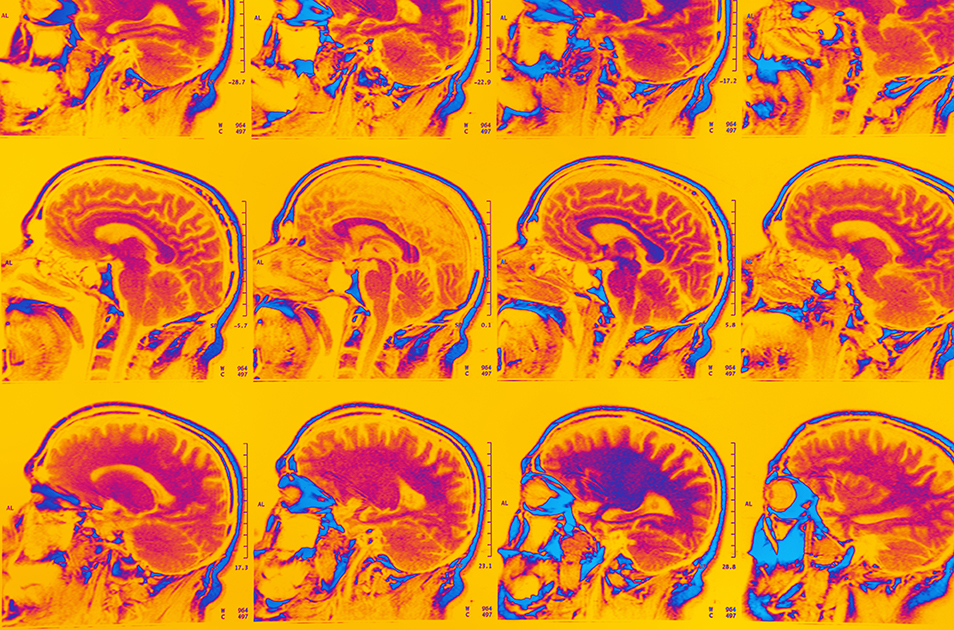Contact us
401 W. Kennedy Blvd.
Tampa, FL 33606-13490
(813) 253-3333
Studying the human brain has been a source of excitement for Sara Festini, UT assistant professor of psychology. Assistant Professor Sara Festini co-authored "Risk for Alzheimer's Disease: A Review of Long-term Episodic Memory Encoding and Retrieval fMRI Studies" that was published in Ageing Research Reviews. The researchers sought to better understand the relationship between nine categories of Alzheimer's disease risk and task-evoked functional magnetic resonance imaging (fMRI) in cognitively-normal older adults. Photo courtesy of Festini

The team was able to identify gaps in the literature — such as brain activity associated with the risk factors of ethnoracial group and late-life depression — where more research needs to be done. They also identified topics for future research projects.
Studying the human brain has been a source of excitement for Sara Festini, UT assistant professor of psychology.

The team was able to identify gaps in the literature — such as brain activity associated with the risk factors of ethnoracial group and late-life depression — where more research needs to be done. They also identified topics for future research projects.
Festini runs the UT Memory Lab, started in 2017 when she came to UT, and mentors four research assistants, plus two students who are completing independent research through a 2020-2021 grant from the Office of Undergraduate Research and Inquiry to study cognitive levels and stress in college students.
Have a story idea? Contact Jamie Pilarczyk, Web Writer
Read more UT Life stories.
Subscribe to News and UT Life.
More UT News